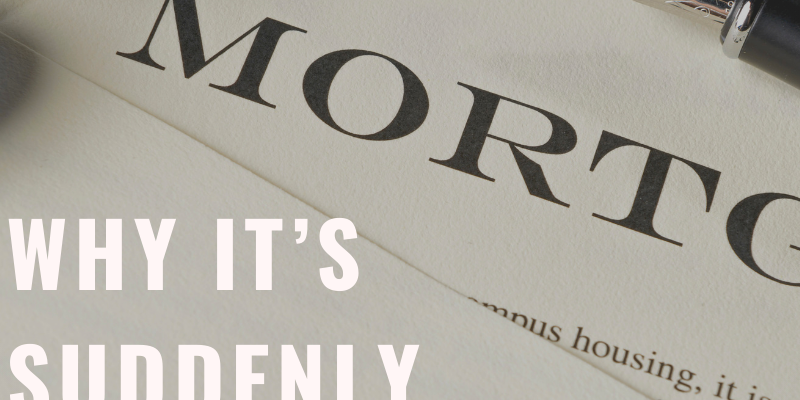Since COVID-19 arrived on the scene, it has taken a bit of a toll on both the real estate and mortgage markets. Not only has the crisis displaced millions of workers from their jobs, but it has also left many feeling insecure in the current economic situation – though plenty of renters and homeowners could save money by acquiring a mortgage or refinancing their soon-to-be or current homes. Unfortunately, these options may not be available for millions of Americans and here’s why.

There has been a large drop in liquidity of some potential borrowers after many lost their jobs and are now unemployed and using their savings until unemployment benefits kick in. Also, with many Americans out of a job, they don’t qualify for a loan with their current unemployment status. This worries a lot of lenders as borrowers may be receiving assistance now, but what if they are not hired back after the crisis? The bank has then bought a bad loan. This puts the borrower in a bad place, too, as they purchased a property they cannot afford.
Last week, Wells Fargo, one of the largest mortgage lenders in the mortgage market, put a temporary suspension on their purchasing of non-conforming loans. A conforming loan is a mortgage that conforms to financial limits set by the Federal Housing Financing Agency (FHFA) and meet underwriting guidelines set by Fannie Mae and Freddie Mac, whereas non-conforming loans do not. Non-conforming loans are often considered jumbo loans and usually have strict qualifications. The FHFA has set a national conforming loan limit for 2020 at $510,400 – but it can be more in some high-cost markets.
Wells Fargo isn’t the only company making it harder to get a loan. You can see this move growing across the industry as mortgage lenders attempt to protect themselves with stricter underwriting. JP Morgan Chase announces that they would only be accepting applicants with FICO credit scores of 700 points or higher. Borrowers must also have a minimum of 20% to put down.

The government is stepping in to try and help the industry by buying up billions of dollars in conforming mortgage backed bonds. Though, you won’t see investors lining up to do the same. Most investors are afraid to take the risk. No one knows what will happen in the mortgage industry with some people unable to pay their loans back. If people are unable to pay their loans back, some banks will be left with liquidity issues and some investors may not want to wait for their money like the banks.
This leads to the final issue: many people who apply for mortgages may have to wait a longer period of time. With title companies closed and underwriters working from home, it could make the mortgage acquiring process longer. Not to mention all of the other people in the process may be working from home or in some sort of limited capacity – from the appraiser to insurance agents. Looking around, I saw time periods from 120-180 days for the full mortgage process to be complete.

There is a light at the end of the tunnel for all of this, though. FHA has not changed their guidelines, which may make it a good option for those looking to avoid some headaches if they are unable to qualify for the loans above. Though, this might also last a long time as some non-bank lenders have raised their standards for FHA loans.
Bottom Line
As the effects of COVID-19 continue to hit the mortgage market, look out for the impact it may have on your borrowing abilities. As many people become unemployed, and many more unable to pay their loans or rent, the uncertainty in the mortgage market grows. This may make it harder to qualify loans – except maybe an FHA loan. Banks are losing liquidity and they are raising their standards as to avoid getting burned. You will probably see a decline in the amount of loans given to applicants in the coming months, making it slightly harder to sell a home as the number of buyers decreases. Though, it could be a good thing as those that are approved for a loan will be considered A+ buyers in the eyes of the bank.
If you would like to learn more about FHA mortgages, check out this article.
Sources:
https://www.fha.com/fha_loan_requirements
https://www.nerdwallet.com/blog/mortgages/differences-conforming-nonconforming-loans/

